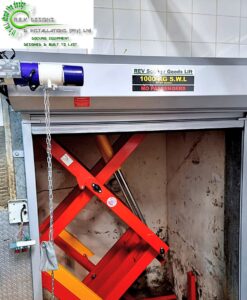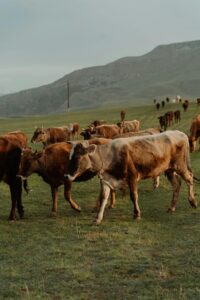The steps taken by EarthRise Trust in purchasing Rustler’s Valley and setting in motion what has happened since is a conversation on its own. Co-operatives have long been punted by governments worldwide as the vehicle to get the wheels of development turning. Our chapter on co-operatives begins: “Co-operatives are not only for the poor, but of all the different types of business organisations, co-operatives reach down most to the low income groups”. And “The main feature of co-operatives is that they help people to help themselves”.
Naledi Village Farmers’ Co-operative will face the challenges of all co-operatives because it is a collection of human beings: how to motivate and keep all members motivated and giving their best? How to ensure quality control (in preparing rooms at the lodge, for example)? That they are doing it for themselves will be a reason for many, but not all. Naledi Village Farmers’ Co-operative carries the hopes of the whole village. It holds the potential too of being an example to communities everywhere.
Another conversation introduced by Rustler’s Valley is around security of tenure for farm workers.
- How do you strengthen the rights of people working and living on a farm without threatening the farmer’s sense of being in control of the land to which he holds the title deeds and to which his life is tied?
- How do you balance this with the security of tenure for farm dwellers themselves? It is not only livelihoods that hang in the balance. Some farm dwellers go back some time on farms. Graves of their fathers and mothers are on the property, for example.
When EarthRise Trust purchased the Rustler’s Valley farm, it gave the community who lived on the farm ownership of the land on which their houses stood so that they would never again have to worry about being evicted. It also fenced off 42 hectares for the villagers’ own use.
It might be true that this is easier to do something like this if you have property and interests elsewhere, in addition to the farm. Be that as it may, the developments at Rustler’s Valley are an event, a benchmark. The Trust has done its best for the community living on the farm, and this challenges others to do their best too.
“Conversation” points to an engagement of role players, defining a problem with a view to seeking a resolution. Conversation sheds light on existing perspectives, hopes for a consensus/ compromise, and arrives at measures to take a case forward. If no forward movement is possible, at least there is more light on the matter. The resulting understanding of the reality on the ground prepares role players for a potential gap when it does open.
Rustler’s Valley is a conversation in itself and one which will lead to many more.
FOOTNOTES
- Issues of tenure have featured in AgriBEE which includes a provision for farmers to set off a portion of land for the farm workers’ own use. The Strengthening of Relative Rights for People Working the Land (50/50) Programme, launched in 2015, sees farmers and workers sharing ownership of the farm. The best model we ever came across was the Grasslands Development Trust in the Eastern Cape which ensured 100% black land ownership [find the paragraph on it here].
- This month (July 2017) has seen the publishing of two documents on the issue: the Association for Rural Advancement (AFRA)’s Pathways out of Poverty: Improving Farm Dwellers’ Tenure Security and Access to Housing and Services and the Socio-Economic Rights Institute (SERI)’s Protection Against Eviction under the Extension of Security of Tenure Act. Both are hailed as guides for people interested in farm tenure rights.
- Last weekend saw the Biznews Weekender newsletter pointed to the many farmers who live off-farm, a response to farm attacks, but this is a point for another post.



